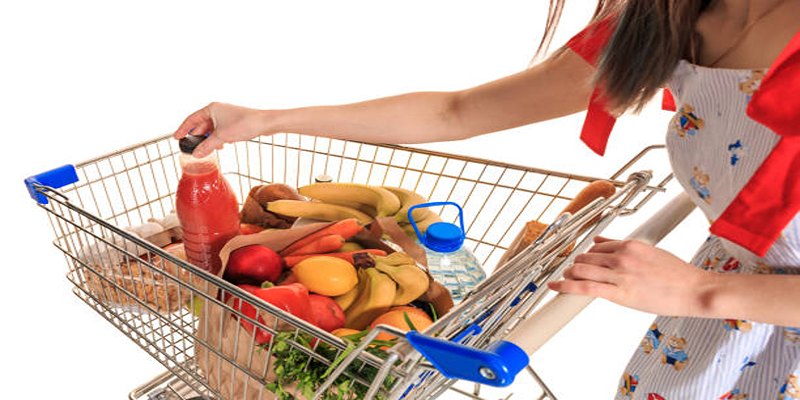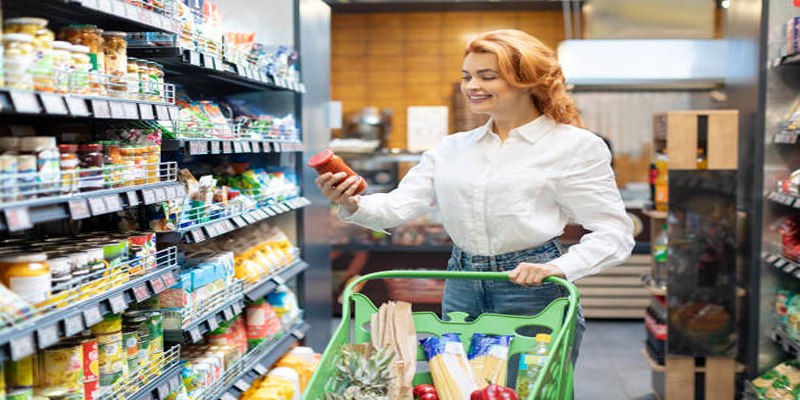Maximize Your Groceries: Tips for Making Your Food Last Longer
When it comes to managing household expenses, grocery shopping can take a significant chunk of our budget. Thankfully, with a little planning and smart practices, you can make your food last longer and reduce waste. The key to maximizing your groceries lies in understanding proper storage techniques, prioritizing perishables, and leveraging meal planning. By learning how to store produce correctly, you can extend its shelf life, keeping fruits and vegetables fresh for as long as possible. Additionally, being strategic about your grocery list and understanding expiration dates can help avoid tossing out food unnecessarily. Whether you're dealing with fresh produce, dairy, or pantry staples, effectively organizing your kitchen can prevent spoilage and save you money. Embrace these tips to ensure your groceries go the extra mile, optimizing both your meals and your budget.
Planning and Preparation
Effective planning and preparation are crucial steps in ensuring your groceries last longer. Start by planning your meals for the week, taking into account which ingredients you already have on hand. This not only prevents over-purchasing but also allows you to use items before they perish. Create a detailed grocery list based on your meal plan, and stick to it while shopping to avoid impulse buys that might go to waste.
Consider preparing certain foods in advance, such as chopping vegetables or marinating proteins, to make weekday meals more efficient and less stressful. Storing prepped foods in airtight containers can also contribute to their longevity. By planning and preparing ahead, you're more likely to use everything you buy and reduce unnecessary food waste.
Smart Shopping Techniques

Employing smart shopping techniques can significantly enhance the longevity of your groceries and reduce waste. Here are a few strategies to consider:
- Buy in Bulk Wisely: Purchasing in bulk can save money, but only if the foods won't expire before you use them. Focus on non-perishable items like grains, pasta, or canned goods that have long shelf lives.
- Prioritize Perishables: During your shopping trip, select perishables like fresh produce and dairy last. This minimizes the time these items spend unrefrigerated, preserving their freshness until you get home.
- Opt for Frozen or Canned Alternatives: These items have longer shelf lives and can be just as nutritious as fresh options. Stock up on frozen vegetables, fruits, and canned goods to ensure you have ingredients that won't spoil quickly.
- Check for Damaged Packaging: Avoid purchasing items with damaged packaging or those past their "use by" or "sell by" dates, as this can compromise the quality and safety of the food.
- Utilize Loyalty Programs: Take advantage of store loyalty programs and apps to receive discounts or rewards on groceries. These savings can be redirected towards purchasing higher-quality items that may last longer.
- Stick to Seasonal Produce: Buying seasonal fruits and vegetables not only ensures freshness and better taste but also means they are usually more affordable.
- Inspect Quality: Select produce and proteins that are in optimal condition without blemishes or decay, ensuring they last as long as possible once stored at home.
Proper Storage Methods
Storage plays a significant role in the longevity of your groceries. Different foods have different storage needs, and understanding them can maximize their shelf life. Here are some general guidelines for proper food storage:
- Refrigerate or Freeze Perishables: Items like meat, dairy, and produce should be refrigerated or frozen to prevent spoilage. Keep an eye on expiration dates and use items before they expire.
- Store Foods at Optimal Temperatures: Your refrigerator should be set between 35-40 degrees Fahrenheit for optimal freshness. Freezers should be set at 0 degrees Fahrenheit or below to maintain quality.
- Use Airtight Containers: Storing food in airtight containers helps prevent exposure to air and moisture, which can accelerate spoilage.
- Separate Produce from Meat: To avoid cross-contamination, store produce separately from raw meat. This also prevents ethylene gas produced by fruits from causing other foods to ripen too quickly.
- Wrap and Label Foods Properly: Seal and label all stored foods with the date to ensure you use them before they expire.
Creative Cooking
Incorporating creative cooking techniques can help reduce waste and make the most out of your groceries. Here are a few ideas to try:
- Make Soup or Stir-Fry: Use vegetables that may be slightly past their prime in soups or stir-fries, as these dishes can still taste delicious.
- Repurpose Leftovers: Get creative with leftovers by turning them into new meals. For example, leftover proteins can be used in salads, sandwiches, or tacos.
- Freeze Foods Before They Spoil: If you find yourself with excess produce or meat that you won't use before it expires, freeze it for later use. Many foods can be frozen and thawed without compromising their quality.
- Use the Whole Vegetable: Don't just use the most commonly used parts of vegetables. Utilize stems, leaves, and other less popular sections in soups, stocks, or pestos to reduce waste.
Maximizing Leftovers

Leftovers are a great way to save money and reduce waste by making use of excess food. Use these tips to stretch your leftovers:
- Reinvent Meals: Transform leftovers into new dishes by adding them to soups, wraps, or salads. Get creative and experiment with different flavor combinations.
- Freeze Leftovers: If you can't eat leftovers within a few days, freeze them in individual portions for future meals. This helps prevent food from spoiling and provides easy grab-and-go options for busy days.
- Rotate Foods: When storing leftovers in the fridge or freezer, rotate foods to ensure older items are used first before they expire.
Conclusion
Implementing smart strategies for meal planning, shopping, and storage not only extends the life of your groceries but also contributes to reducing food waste and saving money. By incorporating proper storage techniques, prioritizing perishables, and making the most of leftovers, you optimize both your kitchen efficiency and budget. Small changes in how you manage your groceries can lead to significant benefits, supporting a more sustainable lifestyle. Remember, every step towards minimizing waste is a positive impact on your household and the environment.












